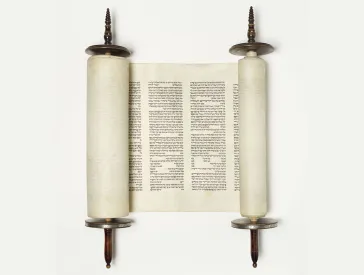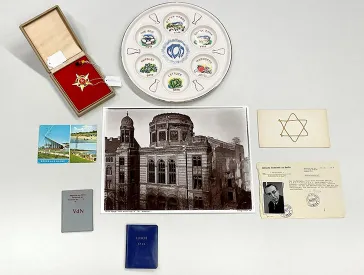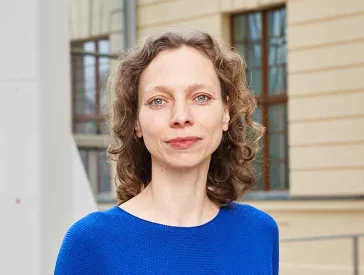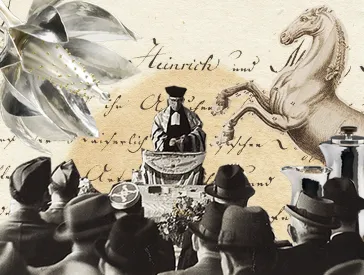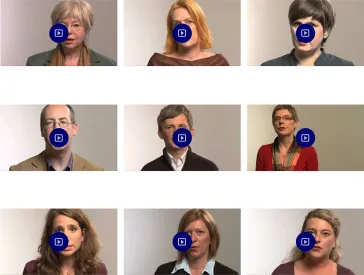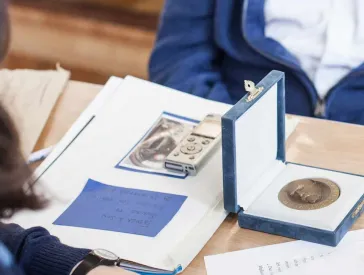
Detail from Maya Zack's computer-generated visualization Living Room 1 (2009); Jewish Museum Berlin.
Our Collection
“Telling stories with objects” is the guiding philosophy of our collection activities. The objects in our collection serve multiple purposes: They offer insights into Jewish life past and present, support academic research and preserve the memory of the individuals whose stories they tell. All this makes the Jewish Museum Berlin an important repository of knowledge and memory for Jewish culture and history in Germany.
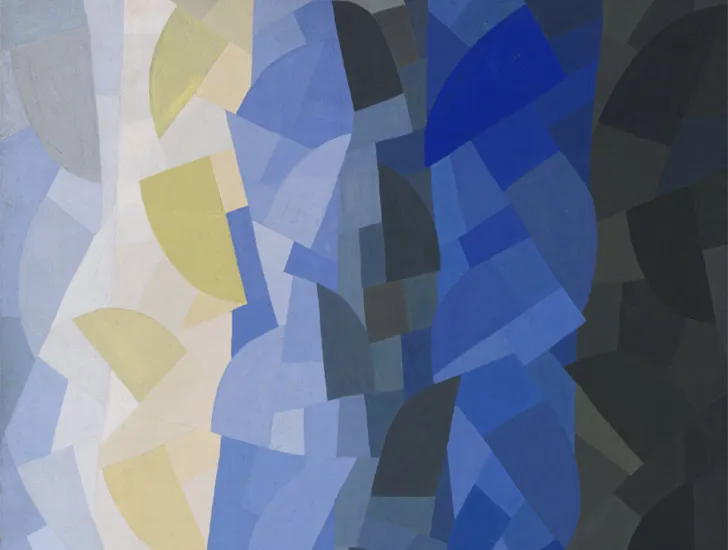
Our Collection
An overview
- Current page: The objects we collect: information & FAQ
- Search our collection: a growing number of items from our digitized collection are available to view and search online (in German)
Details
- Archive: documenting Jewish life
- Audiovisual Media: historic sound recordings, family films and video art
- Library: books and more about Jewish art, culture, and history
- Fine Arts: visual culture of German-Jewish history and the present day
- Photography: from the beginnings of photography to the present day
- The Jewish Object: Material Culture: objects and textiles for nonreligious purposes
- The Jewish Object: Applied Arts: objects produced by German-Jewish craftspeople and companies
- The Jewish Object: Judaica: ritual and everyday items for religious purposes
Digital Content
- Online Showcase: digital presentation of our collection holdings, video projects, and more
- Object in Showcase: stories from our collection
See also
- The History of Our Collection: learn about the initial inspiration and transition to today's museum
- Our Collection Management: Protection, preservation, and documentation
- Sources of Collection Holdings: in publications of the Berlin museum (1978 to 1995)
- Provenance Research: unveiling the origins of our objects
- Conservation: how to presperve our objects for future generations
What You’ll Find in Our Collection
Our collection includes a wide range of materials from historic eras, starting in the late middle ages and continuing to the present. The oldest document dates back to 1384, though most objects originate from the late nineteenth century to the first half of the twentieth century. They document middle class life and modernity, as well as experiences of persecution and emigration. In recent years, targeted collection projects have enabled us to expand our holdings to include objects from the post-1945 period to the present.
While Berlin remains the main focus of our collection, we also seek objects from other regions of Germany. Additionally, as Europe’s largest Jewish museum, we pay attention to Jewish stories beyond Germany’s borders, since these stories are interwoven with and affect Europe and other regions of the world.
Our collection is divided into the following areas: The archive, with more than 600,000 documents; ca. 800 audiovisual media, with supporting media materials; the library, with approx. 15,000 volumes, also serving as a scholarly research library; the visual arts, with ca. 12,300 works of art (paintings, graphic prints, drawings, sculptures, architectural models); photography, with approx. 50,000 individual photos and more than 500 photo albums; Jewish objects, with about 10,000 three-dimensional religious artefacts; the applied arts and everyday culture. Additionally, we preserve more than 1,800 mixed family collections and estates. These personal archives provide rich insights into nearly every aspect of Jewish life in Germany, with each area deeply interconnected through shared themes and historical contexts.
How We Work
Our objects are displayed in permanent and temporary exhibitions and are continually made digitally accessible. They are preserved for the long term through preventive conservation, restoration, and other preservation measures. They form the basis of our educational programs and events, contribute to in-house research and are available to scholars for research purposes and museums as loaned items.
What makes our objects Jewish? When working with our holdings and expanding our collection, we strive to curate in a way that opens up the multiplicity of stories and meanings while highlighting their interconnections. Provenance research is an essential part of this effort.
We welcome contributions that help expand our collection. If you have objects of historical significance, we invite you to support us!
How can I donate objects, photographs, and documents to the museum?
Do you own materials related to Jewish culture and history in Germany that could be of interest to us? We would be delighted to hear from you!
How can I conduct research using the museum’s archive, collections, and library?
Our Reading Room is open to the public. You can also research using our library’s holdings and some of our collection’s holdings online. To view additional holdings, please contact the responsible curators.
I would like to depict or borrow an object from your collections. Who should I contact?
Your contacts for photo permissions are Valeska Wolfgram and Birgit Maurer-Porat (T +49 (0)30 259 93 433, email: fotodoku@jmberlin.de). Please note that the processing time for requests can take between 4 and 6 weeks.
Loan requests must always be made nine months before the beginning of the exhibition. Requests must be made in writing to the director (Hetty Berg, Stiftung Jüdisches Museum Berlin, Lindenstr. 9-14, 10969 Berlin).
